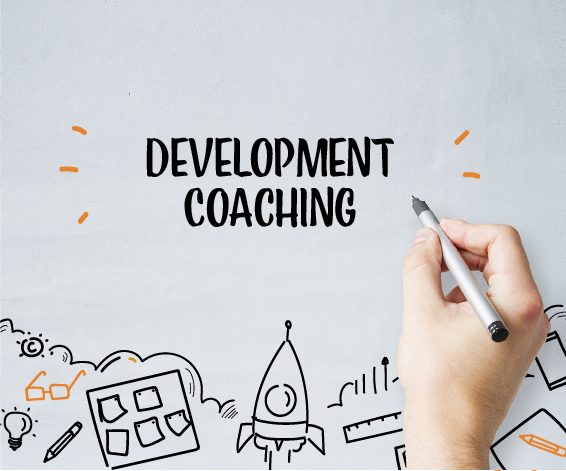Nonprofit development work can be incredibly satisfying. You’re raising funds for important causes—and honing a diverse and valuable set of skills. Plus, experienced development professionals are always in demand. In many ways, development staff are the backbone of successful organizations!
But what does it really take to succeed in a fundraising career?
How to Succeed in a Fundraising Career
Here at Funding for Good, our team has decades of fundraising experience—and funding track records that stretch well into the hundreds of millions of dollars. We’ve also partnered with countless nonprofit fundraising professionals, including those launching or growing consulting businesses.
Across all this experience, we’ve noticed 10 key things that set successful fundraising professionals apart.
Knowing these 10 things—and learning to do them well—will provide a solid foundation for your fundraising career.
1) The first key to great development work is relationship building.
A career in development is about the relationships you build, the connections you make, and the time you put into creating lasting ties. Whether you are writing grants, planning special events, growing a planned giving program, or thanking a donor, always prioritize the relationships. This will pay huge dividends in the end.
The goal of sustainable fundraising is to retain donors, not continuously “need” to acquire new ones.
Since 2016, the average donor retention rate has been around 45%—though it dropped as low as 41.9% in 2021.
This means that for every 100 donors you take the time to cultivate and secure, only 42 of them will make a gift in the next fiscal year. If you’re looking only at new donors, less than 20 of them will give to your organization again.
That is a LOT of work, for a not-so-amazing return on investment (ROI). It’s expensive to acquire a donor, so the goal is to retain them. And the key to retention is relationship building.
Fundraising Career Takeaway #1
If you’re interviewing for a development job, be sure to ask questions about donor cultivation. This will not only show that you understand the nuts and bolts of fundraising, but also give you insight into whether the organization has a strong development program. You’ll want to know about the budget for donor cultivation, the number of active donors in the database, the number of inactive or lapsed donors, and what the organization’s goals are for both donor acquisition and retention.
2) Spend a LOT of time communicating with donors.
A career in fundraising involves near-constant outreach. You’re asking for meetings, sharing program impact, confirming information, securing sponsorships, thanking donors, and the list goes on. The amount of time spent communicating is significant. It SHOULD be significant.
All this communication is what it takes to turn prospects into donors into long-term supporters. Which is, essentially, the definition of donor relations. According to the Association of Donor Relations:
Donor relations is the comprehensive effort of any nonprofit that seeks philanthropic support to ensure that donors experience high-quality interactions with the organization that foster long-term engagement and investment.
In other words, communication is 90% of the work in a development job. Today, communication can happen through many different methods: in-person, by phone, through text, over email, on Zoom, or at events. Of course, each donor will have a preference, which you’ll want to make note of.
Most of this communication isn’t “the ask” for dollars. Rather, it’s relationship-building toward the ask—then continued cultivation toward the next ask.
Fundraising Career Takeaway #2
Communication skills are a must-have for a career in fundraising. Written and verbal communication are both critical, though it’s okay if you’re stronger in one area than another. The key is consistency. Thanking, sharing impact, partnering, and so on all make up the world of development. If you communicate regularly and consistently with your donors, sustaining fundraising revenues becomes easier.
3) Learn to build a network—and use it.
You’ve probably heard how success is “all about who you know.” This is especially true with a career in development. Who you know opens doors for meetings, smooths the way for an introduction, secures in-kind donations more rapidly, allows for easier conversations, and often removes barriers.
Luckily, a fundraising career doesn’t require that you have all the contacts yourself. A smart fundraiser also deploys their organization’s board, staff, and volunteers to identify and leverage their contacts.
Once you start leading your board, staff, and volunteers through prospecting exercises, you’ll uncover amazing untapped resources. You’ll find plenty of low-hanging fruit right at your fingertips… if you just know how to search for it.
Fundraising Career Takeaway #3
Having your own donor network is great—but it’s not a requirement, especially if you’re just getting started in fundraising. Instead, focus on learning how to leverage the networks of your board, staff, and volunteers. This will help you get quick fundraising wins, build long-term sustainability, and even grow your own network.
4) Always, always thank your donors.
Thanking donors is key to retaining them. According to a study by IMPACTS Research, the number one reason that donors didn’t give after the initial gift was that they did not receive a “thank you” for that gift.
A timely “thank you” shows donors that you value them and their contribution. Donors don’t want to feel like ATMs. They want to feel like valued partners. If you treat them that way, they’ll keep coming back.
A hand-written thank you note can go an especially long way. We recommend thanking EVERY donor, at least once a year, with a hand-written and sincere thank you note. Over 20 years of fundraising experience, we’ve never failed to see positive results from hand-written notes. Your thank you note doesn’t have to be a novel but it does need to be written individually. So don’t be tempted to use pre-printed notes with your signature. Trust us: donors will know.
For more check out our post: The Art of the Handwritten Thank-You
Fundraising Career Takeaway #4
As a development professional, you should always be thinking about your organization’s long-term sustainability, not just short-term gains. A thank you note seems like a simple administrative task. But a personalized note shows donors just how much you appreciate them—and sets the tone for a long-term funding relationship.
5) Planting seeds today WILL reap a harvest, you just don’t know when.
As a development professional, you always want to be planting seeds, putting out feelers, reaching out to new contacts, meeting with potential donors or partners, and building rapport with community organizations and businesses.
Like almost everything in fundraising, consistency is key. If you keep sowing seeds, in time you’ll find a never-ending supply of potential funding opportunities to harvest.
Fundraising Career Takeaway #5
Keep an eye not only on this year’s budget, but also on future funding needs, including needs not yet identified. You can’t know when a seed you plant may grow into a donation. But unless you plant seeds today, you’re guaranteed to not have a harvest tomorrow.
6) Fundraising should be driven by your strategic plan.
Your organization’s strategic plan should form the foundation of your fundraising strategy. You want to be sure you’re raising money for the right programs and activities at the right times. A written strategic plan also serves as an incredible donor communications tool. Donors value organizations that are planning for long-term impact and sustainability.
What exactly is a strategic plan?
A strategic plan is a roadmap for where an organization is going, how it will get there, and specific ways to determine if you have “arrived” at the destination.
Your roadmap should include the costs associated with each planned project, program, and special initiative, as well as for core operating costs. It should then distinguish between what work is covered by existing revenue streams and what isn’t.
Once you’ve identified your new or increased funding needs, it’s time to build a fundraising plan. You can map current and prospective revenue streams against funding needs to determine the best fundraising approach for each program or project. From there, you can develop a strategy to raise those dollars and voila! You have the framework for a solid fundraising plan that aligns with your organization’s strategic plan.
If your organization doesn’t have a strategic plan, check out our guide to nonprofit strategic planning to learn how to get started.
Fundraising Career Takeaway #6
Take the time to plan—and make sure your organization’s strategic plan is up to date. A strategic plan makes developing an annual fundraising plan easier and more effective. And it helps ensure your organization can actually achieve the goals your donors are funding.
7) Identify a clear needs and wants list.
If you’re a successful fundraiser, other people in your organization may start coming to you with their own funding requests! Because yes, many nonprofits are chronically understaffed and underfunded. You’ll need an easy way to vet and prioritize these requests. Otherwise, you’ll end up pulled in too many directions.
That’s why, in addition to having a strategic plan, every fundraising professional should have easy access to an approved needs and wants list for the organization overall and for each program and department.
A needs and wants list also gives you perfect talking points when speaking with donors. Donors want to see how their contribution will make a difference. If you can specify a clear and discrete need that a donor can fund, it will be much easier to close a gift.
Your needs and wants list doesn’t need to be complicated. Feel free to use our free needs list template.
Fundraising Career Takeaway #7
Start each year (or quarter) with a needs and wants list for your organization and for each project or program. Make sure the list is pre-approved internally. That way you’ll be ready with specific donor asks when the opportunity arises.
8) A fundraising professional is only as good as the programs they represent.
People want to fund your organization’s impact, not your existence. If you don’t know the impact of your organization, program, or project, how can you successfully raise the funds to sustain it?
To be a successful fundraiser, you will need to provide donors with clear impact goals and frequent, data-backed impact reports. Make sure you know how to get these internally.
Fundraising Career Takeaway #8
Insist that your organization creates systems for tracking impact. This includes baseline data, along with methods for ongoing measurement and evaluation. You’ll also want to be clear on who will be conducting evaluations, how frequently, and how you will get access to reporting.
9) All staff should have clear annual performance goals.
As we shared at the top of this article, development staff are the backbone of a strong organization. But that also means that sometimes we’re expected to perform miracles. Sure, we do deliver funding miracles—but that’s usually because we have great, impactful, and strategic organizations and programs to tell donors about.
Don’t fall into the trap of being your organization’s go-to miracle worker. To succeed in a development job you need both a fundraising plan based on your organization’s strategic plan and personal goals that flow from the fundraising plan.
Individual goals empower you to succeed. Plus, goals protect you from being held accountable for work that isn’t part of your role. Of course you never want to think you’ll be in a contentious situation at work, but many of us have been there.
So think of goals as your map and your life vest. Because you never know what the universe has in store.
Fundraising Career Takeaway #9
Don’t accept a development job where the goals you’re expected to achieve are not written down. These goals should form the basis of your annual work plan, fundraising strategy, and evaluation.
10) “Ask for money, get advice. Ask for advice, get money twice.” Pitbull
Finally, if you go around asking everyone for money, you are going to get a LOT of advice. But if you spend time asking for advice, you will find resources in abundance. As mentioned above, donors want to feel valued. They want to be part of the team—and feel like their contribution is making an impact.
Asking for advice is one way to show that you value donors for more than just their checkbooks.
If you don’t believe us, take this challenge. For the next quarter, include an ask for advice in your donor conversations—before asking for money. We bet your donors will start to open up even more, sharing not only good ideas but also valuable dollars.
Fundraising Career Takeaway #10
Show donors you value them by asking for more than just money. Learn to listen and ask for advice, suggestions, and insights.
Are you ready for a career in fundraising?
A fundraising career can be exciting, fun, and rewarding. The thrill of closing a major gift or landing an important grant is not to be missed!


